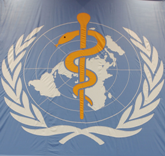China and WHO collaborate to fight emerging infectious diseases

The Chinese Health Ministry, the Guangdong Provincial Government and the World Health Organisation will today launch the new WHO Collaborating Centre for Surveillance, Research and Training on Emerging Infectious Diseases.
The centre will form part of the Centre for Disease Control and Prevention in Guangdong Province (GCDC).
A key focus for the new centre is disease surveillance and prevention. This includes exploring ways of enhancing epidemiological and virological surveillance through pilot projects, and programmes aimed at strengthening the integration of current surveillance systems. The centre will also aim to further strengthen the capacity of the Guangdong CDC laboratory to detect emerging infectious diseases, including influenza.
Another important platform of the centre is to help carry out operational and epidemiological research and studies in areas such as the animal origins of severe acute respiratory syndrome (SARS), the human-animal interface in influenza transmission and efforts to estimate the disease burden of influenza and other infections.
The creation of the new centre provides a training base in Guangdong and other southern provinces of China in emerging infectious diseases. It is hoped that this centre will eventually expand to become a training base for neighbouring countries as well. This would fit within the overall context of the Asia Pacific Strategy for Emerging Diseases (APSED), a collaborative effort between WHO’s Western Pacific and South-East Asian regions.
Among those expected to attend the launch are Vice-Minister Huang Jiefu of the Ministry of Health of China; Dr Shigeru Omi, WHO Regional Director for the Western Pacific; Dr Deng Feng, Director of the WHO collaborating centre; Dr Ah Sian Tee, WHO Director for the Western Pacific for Combating Communicable Diseases; and Dr Henk Bekedam, WHO Representative in China.
“The WHO collaborating centre in Guangdong is a milestone in China’s contribution to global public health,” said Vice-Minister Huang. “It reflects our country’s commitment to playing a prominent role in this regard, at an especially critical moment in public health history.”
“We know from SARS and avian influenza that what happens in one country affects another,” said Dr Omi. “China is helping WHO and the world implement lessons learnt from recent emerging infectious diseases for the national, regional and global public health good.”
Image:












